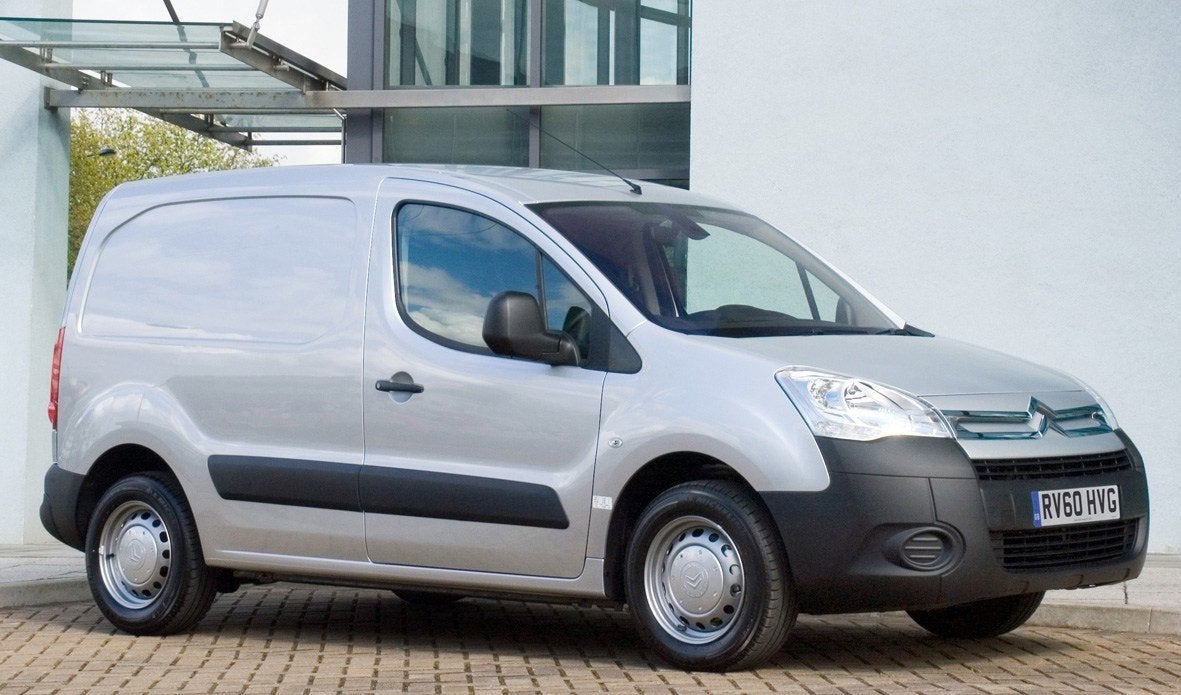Citroen Berlingo Van (2008-2018) Review
Written by Andrew Brady
Quick overview
Pros
- Comfortable ride and reasonably nimble handling
- Good load space in both wheelbase versions
- Opening roof flap adds to versatility.
Cons
- Lower power engines struggle on the motorway
- Optional third seat is cramped for centre passenger
- Showing its age
Overall verdict
"Introduced in 2008, the second-gen Citroen Berlingo is a much improved and more useful version of the massively popular French van."
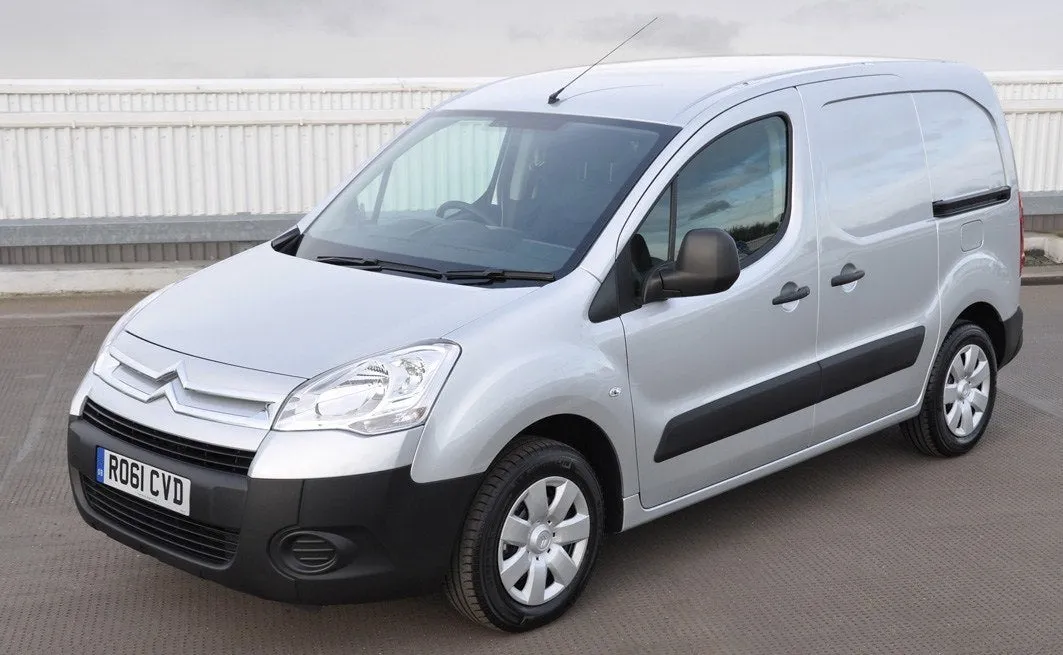
It didn't quite replace the original, which soldiered on renamed as the Berlingo First until 2011, but this newer version is a big step forward in quality and refinement making it a dependable used choice.
Citroen offers the Berlingo van in two sizes, standard L1 and stretched L2 versions that share the same wheelbase and offer owners further scope to tailor the van to their needs. Both platforms are based on the Citroen C4 of the same age, giving this van a comfortable ride on bumpy roads. There are two basic engine choices for the Citroen Berlingo - a 1.6-litre petrol with 95PS or a 1.6-litre HDi diesel.
Other features that have made the Berlingo popular include Citroen’s Ready to Run range that offers factory-fitted options such as refrigeration and carrying racks. Add in other extras such as a third passenger seat and roof opening flap to accommodate longer items such as ladders or poles and the Berlingo is as versatile as it gets in this class.
Engine choice is kept simple with a straight division between 1.6-litre petrol and diesel motors. The 95PS petrol will suit those using the van for short hop deliveries or town work, while the diesel is offered in 75PS and 90PS versions that deliver up to 55.4mpg average economy and emissions as low as 133g/km. There is also a low emissions Airdream model with CO2 of 125g/km.
If you're looking for the newer version, you need our Citroen Berlingo (2018-) review.
Comfort and design
"The front cab of the Citroen Berlingo is very much like the passenger car version, so it’s comfortable, well appointed and practical."
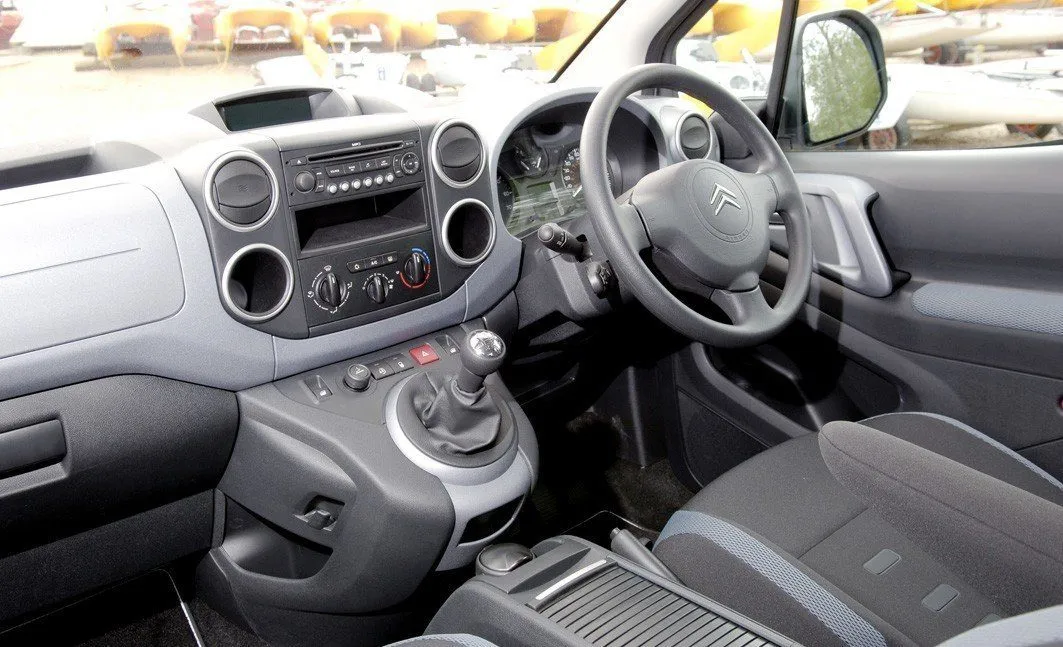
There are loads of storage options dotted around the driver and there’s also a large concealed cubby under the optional third seat that fits between the driver and passenger seat. This third seat is handy for short hop drives, but for longer distances it’s not going to cope very well with three adults squeezed in.
Every Berlingo comes with power steering, central locking that works all of the doors, a trip computer, electric windows and a CD stereo. You need to opt for the LX trim over the basic X to gain cruise control with a speed limiter and the folding passenger seat that boosts maximum carrying capacity by 0.4m3 in both the L1 and L2 versions.
As for the load area, it’s one of the most easily configured and versatile in the class. There are side-hinged rear doors that can be opened to almost 180-degrees for maximum access. A nearside sliding side rear door is standard for the L1 in LX trim, while the L2 model has twin sliding side doors
Further configuration options are opened up by the half-height steel bulkhead between the cab and load area. This can be removed from the passenger side to allow longer loads to pass over the fold-down passenger seat that is standard on all by the base X models. Citroen also offers a ladder frame for behind the driver’s seat or a full height mesh bulkhead for greater safety and security.
Crew Cab models have a rear bench seat with seat belts, while all models of Berlingo have a reasonable amount of load height room. This can be improved with the optional opening roof flap that hinges up a little like a sunroof above the rear doors to make carrying ladders or poles possible without the need for a roof rack. You can also order a roof rack, tow bar, mud flaps and rear window mesh grilles from Citroen as options.
Thanks to the second generation Berlingo offering a longer and wider load bed than the original model, this van can cope with most needs. Buyers can also order the L1 model in standard or uprated payload forms - the heavy duty version can carry up to 896kg of cargo where the standard model is limited to 625kg. Go for the L2 Berlingo and maximum cargo weight is 750kg.
Engines, gearboxes and handling
Easy to drive and good around town
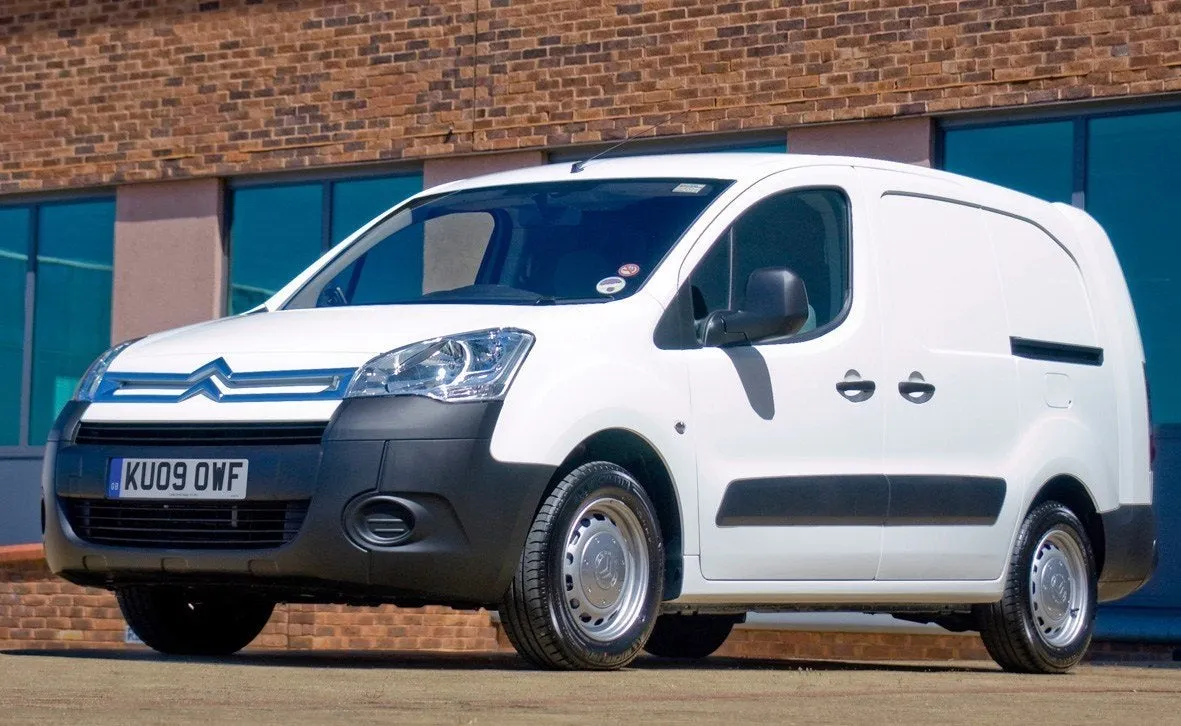
Smooth suspension gives occupants and cargo an easy time over bumpy roads, while the light steering makes it easy to slot through town traffic. Standard ABS anti-lock brakes offer plenty of stopping power and add further confidence to the Berlingo driving experience. For the XTR+ model, Citroen provides a limited slip differential, raised suspension, underbody protection and winter tyres for better traction and driving ability in snowy and icy conditions.
Even when loaded towards its upper limits, the Berlingo remains one of the best handling vans in its sector. It keeps body roll in check and there is little difference between the L1 and L2 models when it comes to cornering or ride comfort.
MPG and fuel costs
A focus on low emissions
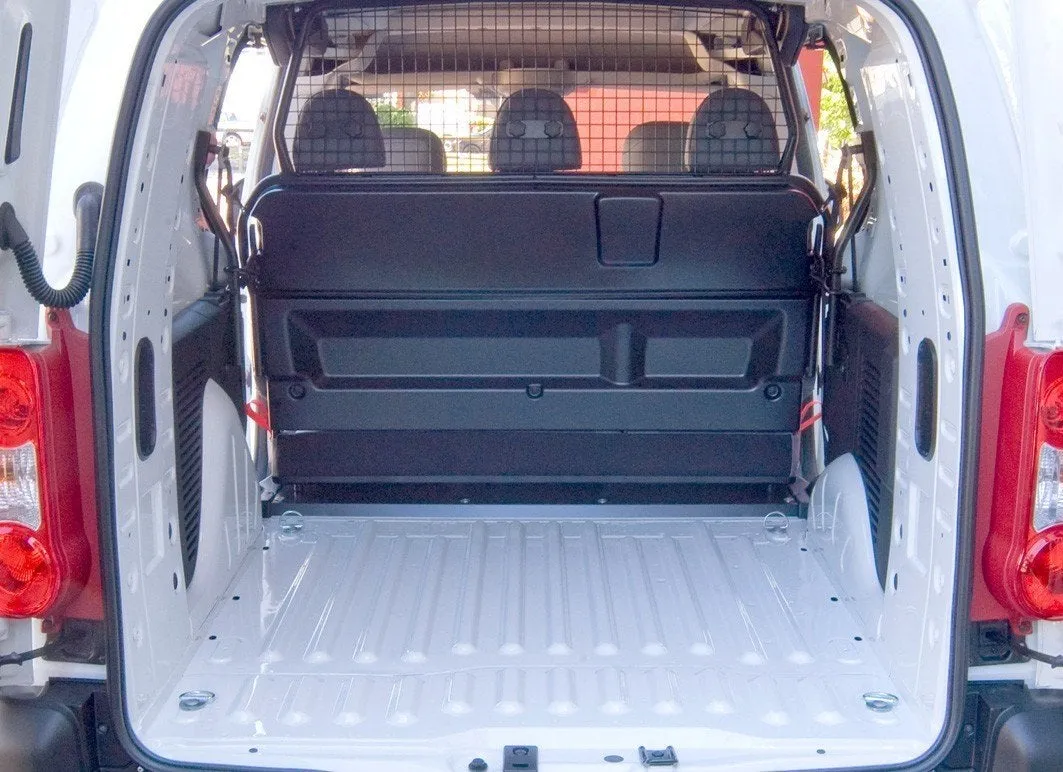
There are two basic engine choices for the Citroen Berlingo - a 1.6-litre petrol with 95PS or a 1.6-litre HDi diesel. The petrol is a simple decision for some buyers and it comes with a five-speed manual gearbox, 39.8mpg average economy and 164g/km CO2 emissions.
For the diesel, the choice is more diverse as the engine is offered in 75PS and 90PS outputs for the standard length L1 model. This configuration offers a claimed 55.4mpg average economy (that's with no load on board though) for the 75PS engine and 53.3mpg for the 90PS model, with CO2 emissions of 133g/km and 138g/km respectively.
Citroen also offers an Airdream model that uses the same five-speed manual gearbox as the other diesels. This is a honed version of the 1.6 diesel that reduces emissions to 125g/km and improves official economy to 58.9mpg while retaining the same performance as the standard 90PS model.
Go for the longer, larger L2 and you are limited to the 90PS diesel for engine choice. This motor returns an official 51.4mpg in the basic Berlingo L2 or 50.4mpg in Crew Van and Platform Cab versions. The standard van offers 143g/km CO2 emissions, with the other two models delivering 147g/km for the Crew Van and 146g/km for the Platform Cab. There’s also an Airdream version of the L2 with 56.5mpg and 132g/km emissions.
The Airdream engine may be more economical and cleaner than the standard 1.6 diesel, but there’s no loss of performance. Like the non-Airdream 90PS 1.6 diesel, it feels perky and quick on all roads, pulls strongly when loaded up and is decently refined. Choose the 75PS diesel and you’re better sticking to town deliveries, while the 1.6 petrol is nippy but of limited interest to most users. The five-speed manual gearbox used in all Berlingo vans does not have as precise a shift as that found in Fords, but the clutch pedal is light, making the Berlingo easy to use for long periods in stop-start traffic.
What equipment does the Citroen Berlingo Van come with?
Good equipment across the range
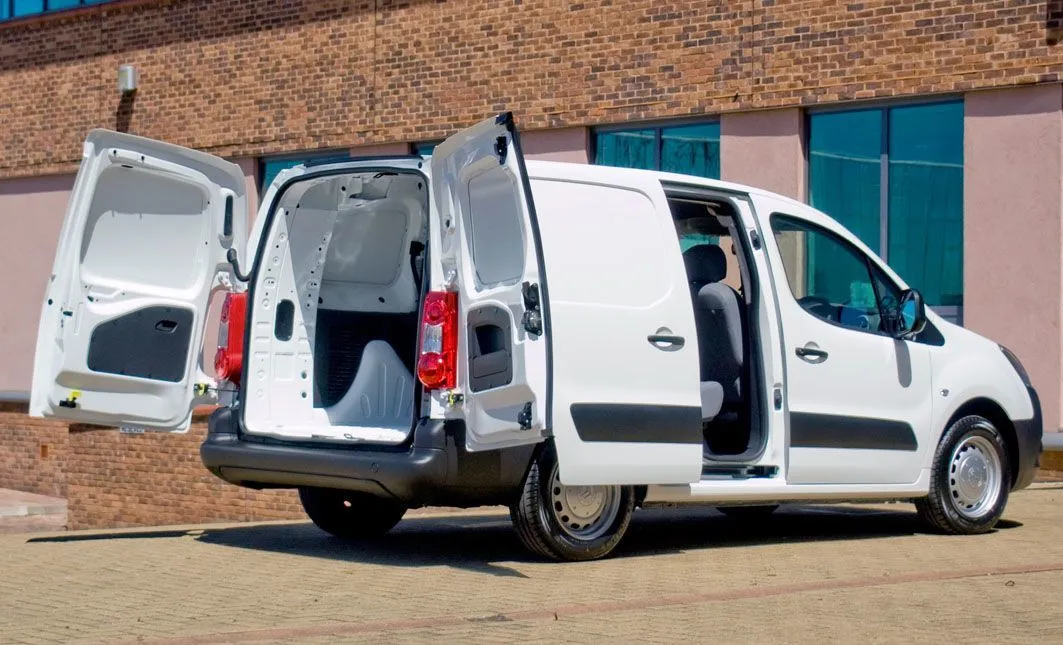
Every Berlingo comes with power steering, central locking that works all of the doors, a trip computer, electric windows and a CD stereo. You need to opt for the LX trim over the basic X to gain cruise control with a speed limiter and the folding passenger seat that boosts maximum carrying capacity by 0.4m3 in both the L1 and L2 versions.
Get our latest advice, news and offers
Keep me updated by email with the latest advice, news and offers from heycar.
By submitting you agree to our privacy policy
